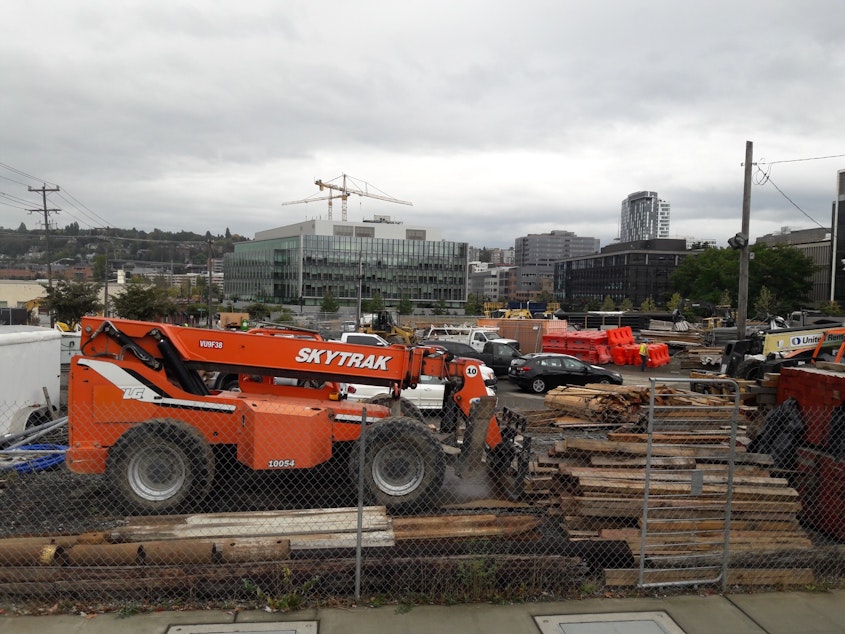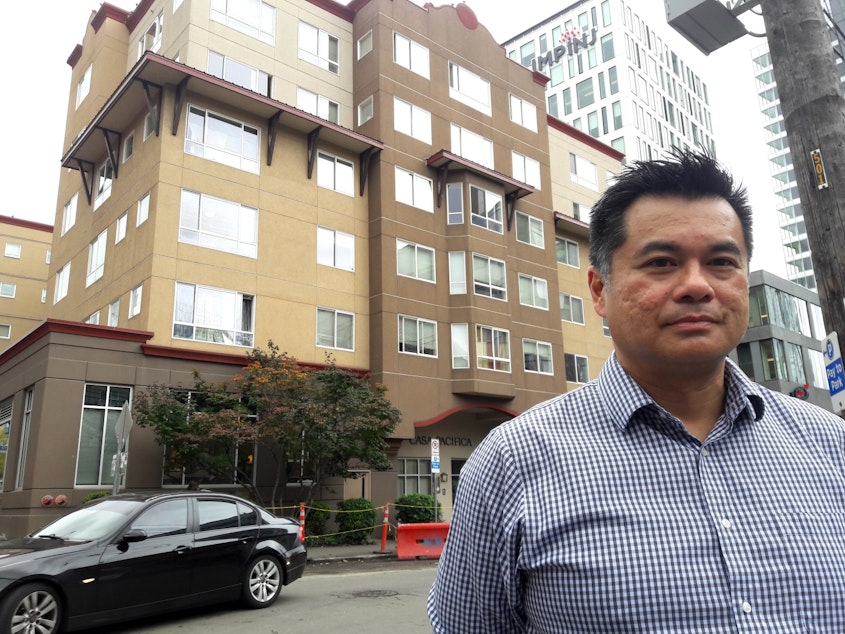Affordable housing developers will get first crack at extra city properties

According to new rules, Seattle must offer surplus land to developers of affordable housing first, before selling it on the open market. The city may even hold onto properties for years, so that nonprofit developers can get other sources of funding lined up.
Housing advocates want the city to retroactively apply the new rules to a coveted property just steps from Amazon's headquarters.
First, some historical context. Around 20 years ago, Bellwether Housing bought some cheap land north of downtown and built six stories of affordable housing there.
“I remember driving down Fairview, and it was the tallest thing in South Lake Union,” said Richard Loo, Bellwether's director of development.
But today, the neighborhood practically belongs to Amazon. Loo said the Casa Pacifica housing project probably wouldn’t get built today. “It’d be very difficult due to high land values," he said. "We’d have to find an altruistic seller to make this happen.”

The new rules, sponsored by Councilmember Teresa Mosqueda and supported by Mayor Jenny Durkan, would help affordable housing developers like Bellwether by giving them the first crack at city properties. The new rules complement similar rules developed earlier for surplus properties owned by Seattle City Light.
But having a chance at the land doesn't guarantee a project will get built; Loo said once you have the land, you still need to find money to pay for construction. But the legislation helps with the first step.
A coalition of housing advocates support the measure, but disagree with Durkan on whether it should apply retroactively to a prime piece of property already on the market.
It’s called the Mercer Megablock. It’s just steps from Amazon’s headquarters and the Gates Foundation — perfect for someone to set up a corporate headquarters to poach some of the neighborhood's tech talent.

But former mayoral candidate Cary Moon has a different idea :“We prefer affordable housing on this site because we’re here in South Lake Union which is an increasingly wealthy enclave of tech workers,” said Moon.
For every tech job, there's a office administrator, a restaurant worker, or a janitor who cannot afford to live near their South Lake Union job, she said, and their lengthy commutes contribute to the region's pollution and congestion.
Moon said the city should rip up the city's formal "request for proposals" on the Mercer Megablock and re-evaluate the property's potential, given the new rule's emphasis on affordable housing.
Durkan said it would damage the city’s reputation to pull out now. She said it would be better to sell the property and use the proceeds to fund affordable housing at another location.




